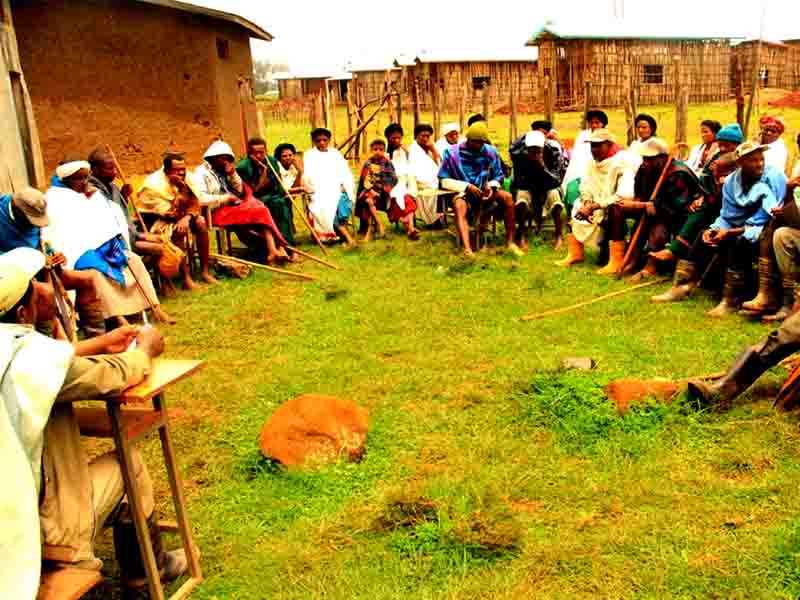
Educating communities for empowering girls
The CECP project has been designed to capitalize the existing experience of FinoteHiwot-DFID’s End Child Marriage Programme in East Gojam and targeted to reach 35 unreached kebeles in Aneded and Basolibenworedas. Reaching hard to reach community through mobilization and campaigning against child marriage works well in East Gojam zone. As child marriage is a multidimensional social norm that puts adolescent girls, boys, families and the larger community into a complex social, psychological and economic crisis, CECP project employed a holistic, girls-centered and multi sectoral approach to intensify the ongoing efforts to end child marriage. Furthermore, making girls to the center of attention is one of the successful strategy in the prevention, protection nd provision of services in the course of eliminating early childhood marriage in East Gojam.
Community Dialogue is one of the strategies successful in educating community to cause social norm and behavioral change among communities towards ending early marriage. With this project, the Community Dialogue (CD) has been organized in the already established main CD groups (one per kebele) and local structures such as women development groups, men development groups, community policing, “Idirs”, etc. Idirs informal community based organization primarily formed to support marriage ceremonies and funerals in the community. The CD platform allowed community members to discuss the underlying factors, the multifaceted consequences and possible response mechanisms of child marriage. The CD involved a wide range of influential community members.
Working with Iddirs and Community Leaders-Making the community based informal structures like Idirs at the heart of the solution is rewarding strategy in East Gojam Zone. Idirs one of the informal child protection community structures are found to be an appropriate community platform that gathers all households to prevent, protect and respond to child marriage in East Gojam. As the respective Iddirs have their own governance structures and bylaws in which all members are obliged to adhere with.
‘‘We joined a training on child marriage together with participants drawn from police, women, justice, education, agriculture sectors and religious leaders.
